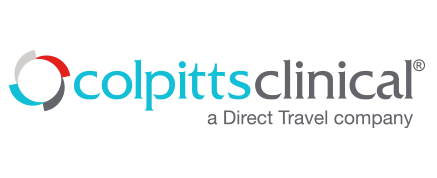Medical Visas for Clinical Trial Travel: What Patients Should Know
The U.S. and many other countries have various types and requirements when it comes to visas for international visitors. The type of visa required often depends on the nature of travel – whether it is for business, tourism, or if it’s related to medical care. The Visa Waiver Program (VWP), also referred to as Electronic System for Travel Authorization (ESTA) permits citizens of 38 countries to travel to the U.S. for business or tourism for stays up to 90 days. Countries that have adopted the VWP have a reciprocal agreement to allow U.S. citizens and nationals to travel to their countries for a similar length of time for business or tourism without a visa. The ESTA is an online application that needs to be completed by the traveler prior to the date of departure. The cost of the ESTA is approximately $15 USD.
This may sound daunting to someone who is traveling in order to receive medical care or participate in a clinical trial. Clinical trials often require extended stays, sometimes beyond 90 days. Luckily, there is an alternative option for those travelling to the U.S. to participate in a clinical trial. If there is the possibility of an extended stay beyond 90 days, or travel is from a country not in the VWP/ESTA program, then it is recommended that the traveler obtain a B2 medical visa. In the ever-changing political environment regarding immigration in the U.S., it is important to obtain the correct visa.
The application process for the B2 visa
The application process for the B2 visa can be lengthy and involved, and the timeline is subject to how quickly potential applicants can provide their information. A few of the requirements needed include a medical letter describing the trial, the diagnosis and treatment for the applicant and how they will financially support themselves during their trial participation. In addition, there is a detailed questionnaire that all applicants must complete that will require personal information such as: evidence of home ties (like an employer letter), utility bills for up to 12 months, deed of property ownership, past visas and other proof of ties to their home country. Once the application is complete, and assuming the applicant has a valid passport, an in-person interview is scheduled at the traveler’s local consulate or embassy. Wait times vary by location and can be as short as 5 days or long as 18 days or more. The whole process from start to finish can take up to the 3 months.
Once the B2 visa is granted it becomes the entry ticket to the U.S. and will allow for multiple trips to the U.S. for the validity of the visa. It’s important to note that visa validity and admission period are completely separate. Depending on the country, most visas are valid between 5 to 10 years, but for a few countries, validity may only last 1 year. The admission period is determined each time a foreign national enters the U.S. and normal admission for the U.S. is 6 months. Extensions are available in 6 month increments. While there is no limit to the number of extensions one can apply for, the adjudicating officer always has the discretion whether to approve or not.
Read More about Clinical Trials
How Travel Services Build a Better Trial Experience
Leveraging a Global Network to Exceed Patient Expectations
A Caregiver’s Thoughts on Clinical Trial Care
Visit us on Facebook



